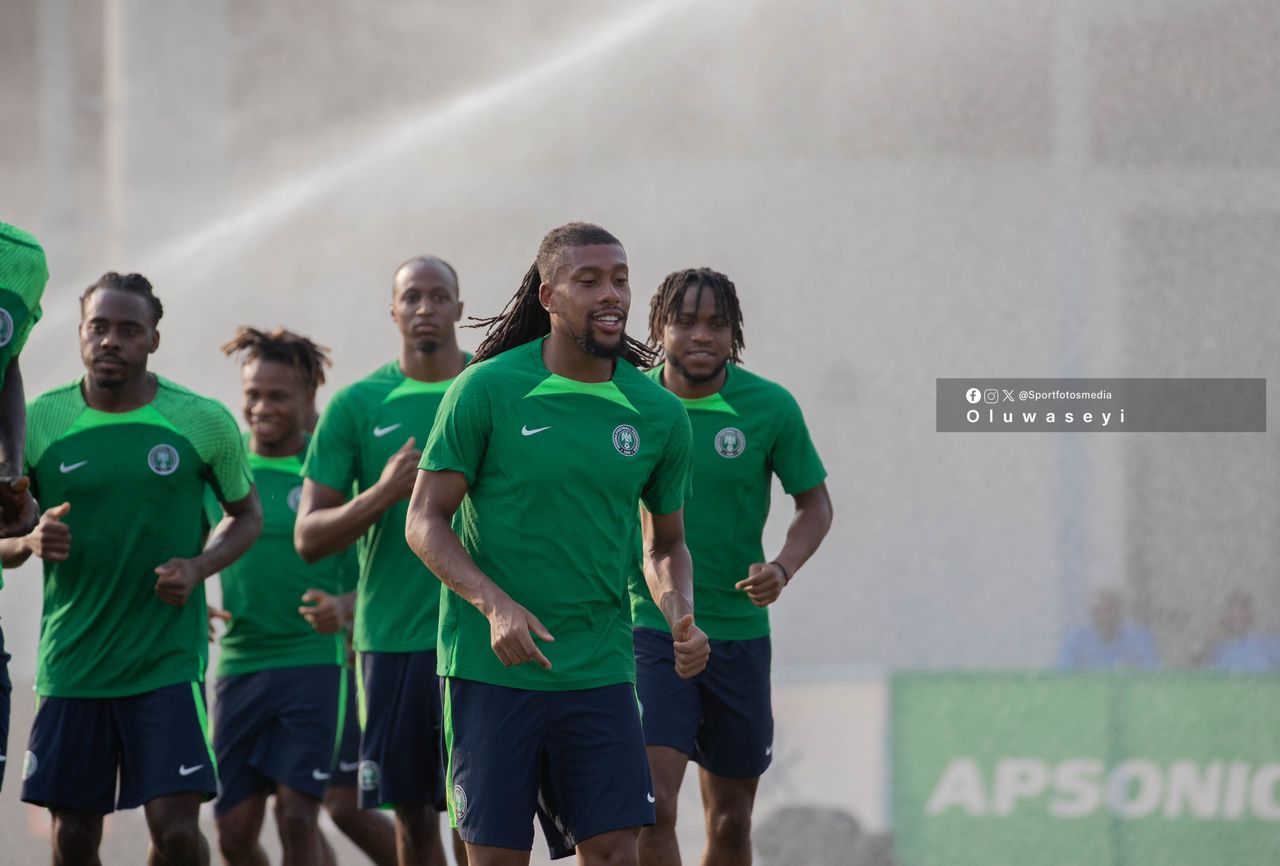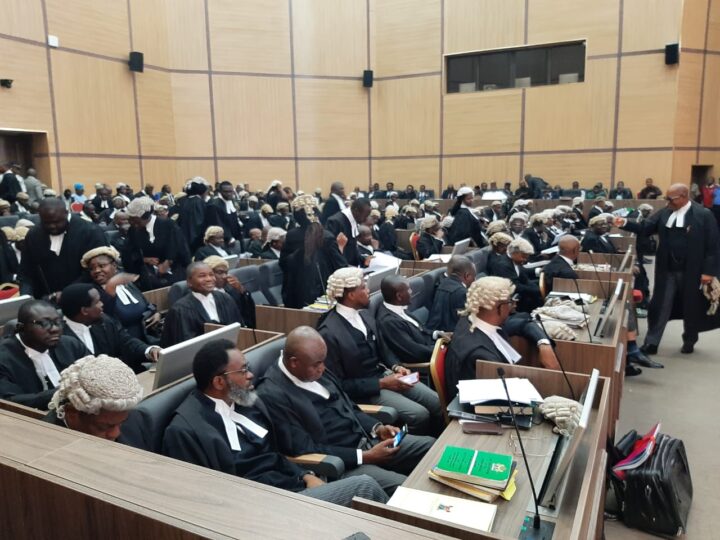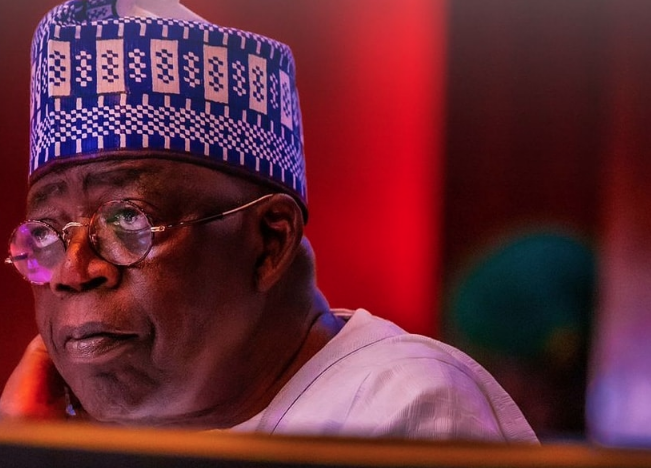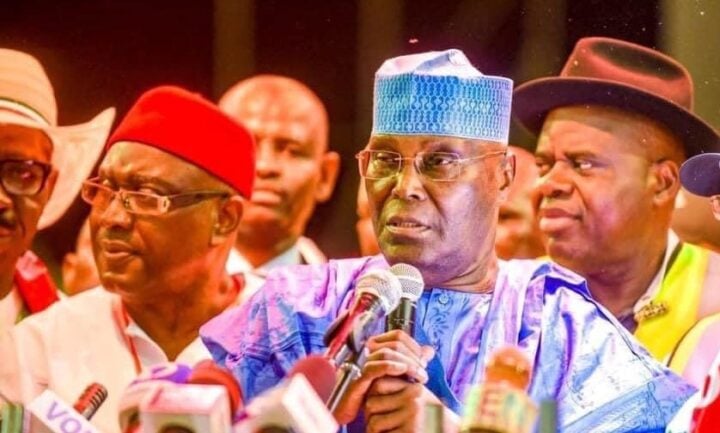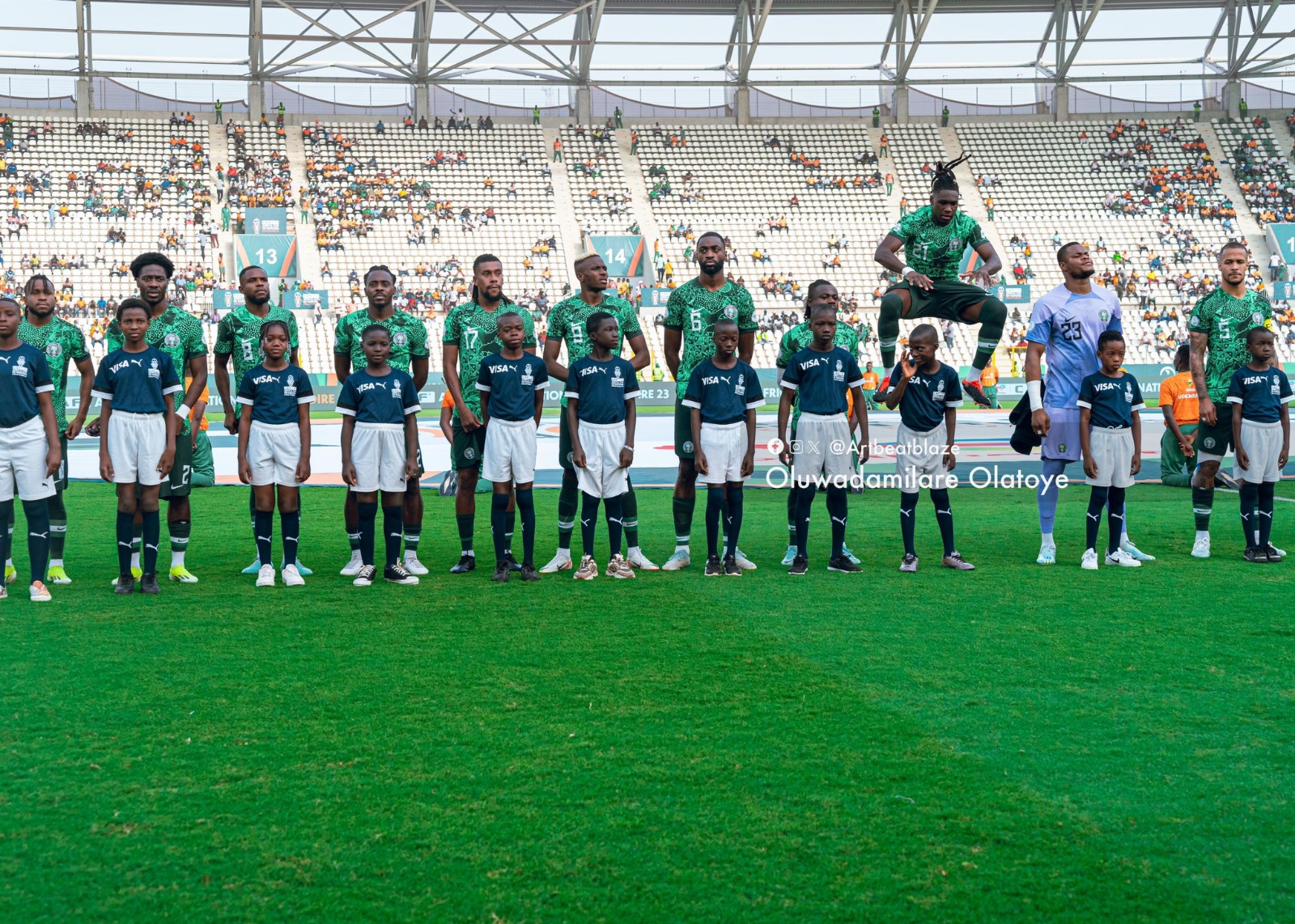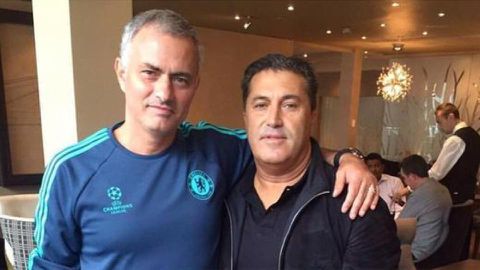Photo Credit: Victor Oluwaseyi
After over a decade of wait, the Super Eagles are back in the final of the Africa Cup of Nations (AFCON). They are about to conquer the continent, as they did in 1980, 1994, and 2013. The team is close to triumph. The players can feel the warm glow of glory as it inches closer. Destiny beckons them down the gilded path only trodded by those regarded as heroes past. Over 200 million souls are waiting to canonise the players’ names in history.
The players held on against Equatorial Guinea. They were too strong for Cote Ivoire and Guinea-Bissau. The Eagles chased the Indomitable Lions of Cameroon like ordinary cats. The Black Antelopes of Angola surrendered, and the Bafana Bafana of South Africa were bent.
Despite their shaky start to the competition, many have considered this crop of players to be the country’s best set of talents in recent years.
At the heart of the team are boys raised in London, England, but chose to represent their homeland. The group is lovingly dubbed “Innit Boys”.
Advertisement
TheCable takes a close-up look at the “Innit Boys” driving the Super Eagles’ AFCON charge.
ALEX IWOBI
Iwobi was born in Lagos. Chuba, his father, was an ex-footballer of some repute in the Nigerian league, where he played as an attacking midfielder for the now-defunct Vasco da Gama of Enugu.
Advertisement
Iwobi left Lagos when he was four years old. After a brief stay in Turkey, where Jay Jay Okocha, his maternal uncle, was playing, the family settled in East London.
Growing up in the London Borough of Newham, Iwobi said his parents ensured he remained in touch with his Nigerian side.
“I always felt at home in England but more connected to the West African nation,” he told Forbes.
Iwobi grew up listening to Nigerian music and eating Nigerian food. He was taught Pidgin English but could only pick up a smattering of his native Igbo language.
Advertisement
He was a childhood friend of Ola Aina. They both attended the same secondary school in the neighbourhood.
Iwobi started his career at Arsenal, joining when he was six.
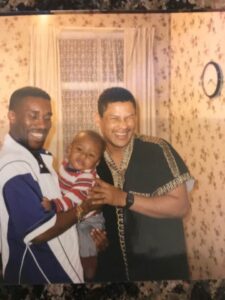
Speaking on his influence as a player, Iwobi referenced his uncle Okocha as one of the players whose skills and talent he admired.
“He [Okocha] had a huge influence. I remember as a kid coming here. I watched him with my dad — coming here on my dad’s shoulders,” Iwobi told The Athletic.
Advertisement
He would follow in his uncle’s footsteps and play for the Super Eagles of Nigeria even though he had represented England across several youth levels.
He debuted for Nigeria in a 2-0 defeat to the Democratic Republic of Congo in a friendly in Belgium in 2015. He came off the bench for Ahmed Musa in the game.
Advertisement
Iwobi became a fan favourite when he scored the goal that sent Nigeria to the 2018 World Cup in Russia. Ever since, he has been a mainstay in the Super Eagles setup.
OLA AINA
Advertisement
Aina was born in Southwark, South London to Nigerian parents — Olufemi Aina, his father, and Esther, his mother. Aina’s family’s ancestral hometown is Ijebu Ikenne, Ogun state.
Aina grew up with Iwobi as a close friend, and their houses were within walking distance.
Advertisement
“When I moved closer to East London, Essex, that’s where I met Alex, thirty seconds, I could walk to his house,” Aina said about his connection with Iwobi.
“We were in the same primary and secondary school. We have the same set of friends. Alex has been in my life for the majority, that’s how we started.
“On the pitch, outside of the pitch, the connection is there, and it’s good for our football, I like to play alongside Alex. He understands how I play, I understand how he plays, so it’s good.”
At 11, Aina featured in a youth tournament in Bognor Regis on the English coast. He stood out from the over 600 other youngsters in the competition; he was inevitably spotted by scouts and attracted attention from 15 clubs, including Tottenham Hotspur and Chelsea.
Olufemi, a diehard Tottenham fan, wanted his son to sign for his favourite club but the North London outfit were not as keen as the family had hoped, and Chelsea snapped up Aina instead.
“He was meant to sign for Tottenham. They had him over for about three weeks, then on the day he was supposed to sign, they kept acting funny. As a big Spurs fan, it was heartbreaking. Luckily, Chelsea officials were still calling us daily, so we decided, ‘Why not go where you are wanted?'” Aina’s father told Aljazeera.
The daily journey from the family’s home to Chelsea Academy required dedication from Olufemi. In committing to his son’s training, Olufemi could not hold onto jobs and lost the mortgage on the family’s house.
Despite the family’s struggle, Aina continued to excel at Chelsea Academy. He was a member of Chelsea’s all-conquering 1996 generation that won multiple Youth FA Cups. He was also Iwobi’s teammate in the England youth setup.
He would eventually switch allegiance to Nigeria and got his first call-up for the Super Eagles in May 2017 in an international friendly match against the Corsica senior national team.
Although he was named in Nigeria’s preliminary 30-man squad for the 2018 World Cup in Russia, he did not make the final 23.
A year later, he featured in his first international competition for Nigeria at the 2019 AFCON, where he made a sumptuous back-heel assist to Odion Ighalo in Nigeria’s first game against Burundi.
Aina has been one of Nigeria’s stellar performers at the AFCON in Cote d’Ivoire. He has featured in all the games for the Eagles as a fullback or a lung-bursting fullback.
ADEMOLA LOOKMAN
Lookman’s path to professional football was less linear than Aina and Iwobi’s. He never played in the academy of a big club and was still playing amateur football for Waterloo FC at 16.
Lookman was born in the London Borough of Wandsworth. He is the only boy, and the only member of the family born in England — his older sisters were born in Nigeria. He grew up with his mother while his father was in Nigeria working.
Life in London was rough for Lookman’s family, and his mother struggled to get by alone.
“Life was tough growing up. There were some nights when I didn’t have … how can I say this? I didn’t have the best of food,” Lokman told the UK Guardian.
“I also didn’t have certain things when I was younger. It was a real struggle for my mum, and she had to take care of all of us. She did the best she could, and she made sure there was food on the table and that I had clothes to wear. Everything I could ask of my mum, she gave me. I was happy but, as you get older, you realise how difficult it must have been for her. She was working all kinds of jobs – cleaning jobs and anything she could take. She was always looking for work.”
But away from the difficult life, Lookman was a bright student who excelled academically, attending St Thomas the Apostle College in Peckham.
“Of course, there’s pressure from lots of areas. But, even as a kid, you need to make the decisions that don’t put you or your family at risk,” he said.
“I was able to differentiate right from wrong, and hanging around with the wrong crowd and going around with the right people was key for me. I took school very seriously, and for my GCSEs, I got five As, four Bs and one C. It definitely helped focus me.”
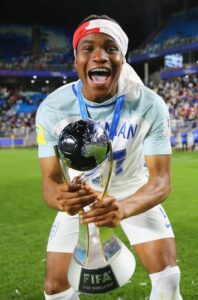
Despite his apparent academic brilliance, Lookman kept faith in his pursuit of professional football life. His dream manifested when Charlton Athletics faced his London County FA representative side in a friendly match in 2013. His talent shone, and the club brought him into its ranks immediately.
Lookman also played for England across several age-grade levels. He was part of the England team that won the FIFA U-20 World in 2017. He scored three goals in the tournament.
Lookman rejected the Super Eagles thrice before switching to Nigeria in 2022. He played his first game for Nigeria against Ghana in the 2022 World Cup qualifiers.
The winger is Nigeria’s leading goal scorer in the ongoing AFCON with three goals. He scored twice in the Eagles’ 2-0 victory over Cameroon in the second round and netted the winner against Angola in the quarter-final.
CALVIN BASSEY
Bassey was born in Italy. He was raised by Mercy, his mother, alongside his three brothers.
In a chat with The Athletics, Bassey said his father left the family when he was six.
“He’s just not in my life — we lived with him, but that was when I was really young,” he said.
“Since I was six, it has been mum and us boys. I knew that if I got the chance to put my name on the back of a shirt, I wanted it to be my mum’s name — my way of saying thank you.”
Mercy ultimately moved the family to Newham, London. Bassey described growing up in the borough as living in “a war zone”. He lost one of his cousins to the violence.
“There was a period in Newham when it was like a war zone. Kids were being stabbed left, right and centre. I lost two mates. Both went to my school and were shot dead. One of them got shot right next to my cousin’s house when I was 17. He was 19,” Bassey said.
“Where I was from, there were only two ways: you end up in a gang, or you played football. The guys who were my friends at the time were just boys I grew up with, I didn’t know if they were good or bad.
“There have been situations where if I made the wrong decision, I could have been in big trouble with the police, but the discipline of football helped, knowing I had to be home early to recover and sleep, before games.”
Bassey also had a rough beginning in professional football. As a teenager, he was turned down by Crystal Palace, West Ham United, Wolverhampton Wanderers, Leyton Orient, Charlton Athletic and Barnet.
He was 15, and almost abandoned his dream, when he went on trial at Leicester City, and the club signed him.
Bassey debuted for Nigeria in a World Cup qualification match against Ghana on March 25, 2022.
He has become a significant part of the Eagles’ defence at the AFCON, forming an impregnable backline partnership with William Troost-Ekong and Semi Ajayi. Bassey also provided an assist against Cameroon.
SEMI AJAYI
Ajayi was born in Crayford, South London, to Nigerian parents.
He represented Nigeria at youth levels. The centre-back joined Arsenal from Charlton Athletic on a free transfer on July 1, 2013. He was dubbed the next Sol Campbell by coaches at the Arsenal academy.
Ajayi received his first call-up to the Super Eagles in August 2018 for the 2019 AFCON qualifiers. He made his debut against Seychelles, coming on for the injured Chidozie Awaziem in the 73rd minute.
He has been a permanent feature for the Eagles at AFCON. He has been a potent ball-playing defender who sometimes glides forward. He had a goal disallowed against Cameroon.
JOE ARIBO
Aribo was born in London. Ayo, his father, also played grassroots football in Nigeria before moving to the UK.
Aribo grew up in Mitcham in South-West London. He was nurtured and educated at Kinetic Foundation, a not-for-profit that helps young people through sports into employment, education and training.
He also played amateur football with Staines Town before joining Charlton Athletics.
Aribo made his debut for Nigeria in August 2019. He has been restricted to cameo appearances at the ongoing AFCON, coming on as a substitute for injured or fatigued teammates.
BRIGHT OSAYI-SAMUEL
Osayi-Samuel was born in Nigeria before his family moved to Spain. He remained in the country before immigrating to England when he was 10.
Nelson, his father, said he prayed to God that his son must be a footballer. The father’s prayer was answered, and Osayi-Samuel grew up in Woolwich, London, as a reputable footballer.
He was in the same district football team as Eberechi Eze, who described Osayi-Samuel as “a brother to me”.
Osayi-Samuel joined Queens Park Rangers as a youngster before moving to Fenerbache in Turkey.
He debuted for Nigeria in November 2022 in a friendly game against Portugal, where the Eagles lost 4-0.
Osayi-Samuel remains a fringe player for Eagles at AFCON, but when he filled in for Zaidu Sanusi against South Africa in the semi-final, he was impressive. He might be in the starting line-up for the final if Sanusi’s injury persists.
Add a comment
